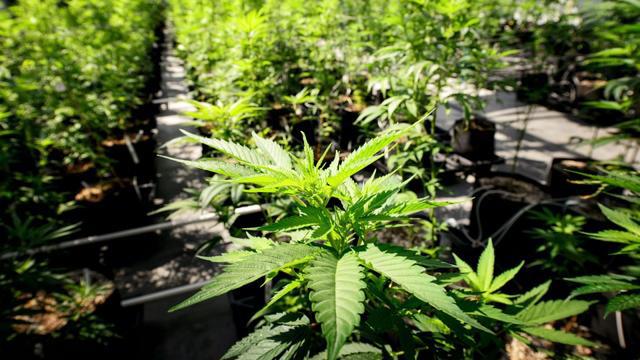Majority of Ontario Residents Oppose Government Run Cannabis Stores
Published September 13, 2017 at 11:13 pm

It’s true – the province has made a major move in its plan to regulate and dispense cannabis prior to the federal government’s plan to legalize the substance next year. Now that the Ontario government will be overseeing the legal retail of cannabis all over the province, residents have weighed in on the decision.
According to a new poll by Nanos Research, the majority of Ontario residents support private sector cannabis stores over government run cannabis stores.
The Ontario government recently announced that it will create a Cannabis Control Board of Ontario (CCBO), similar to the LCBO, to oversee the legal retail of cannabis in Ontario through new standalone cannabis stores and an online order service. This is all well and good – decisions were pending on how the substance would be sold for some time.
As part of the announcement, however, the province announced that there will be no forms of private cannabis sale allowed in Ontario.
Since the CCBO news was released, people across the province have expressed mixed feelings about the government being entirely in control of the regulation and distribution of marijuana.
Nanos Research’s poll revealed that more than half of Ontario residents support (32 per cent) or somewhat support (23 per cent) having marijuana sold by licensed and regulated private retailers instead of a government run CCBO when marijuana is legalized. That’s a fair 55 per cent of residents who would rather see private cannabis retailers than solely a CCBO.
On the other end of the spectrum, 31 per cent of residents oppose, and nine per cent of residents somewhat oppose having marijuana sold by private retailers instead of the government. Six per cent of those surveyed say they are unsure of their preference.
The Consumer Choice Centre (CCC) said it “condemns” the government banning private sector cannabis stores. What’s more, the CCC calls the decision a “bad deal for consumers” and “against the will of Ontario residents.”
“The government banning private sector cannabis stores is a move that not only limits consumer choice but also enables black market sales,” said the CCC in a statement.
Whether or not this is true has been up for debate amongst residents since the creation of a CCBO was announced earlier this week.
Toronto-based David Clement, the North American Affairs Director for the CCC, said the regulations limit choice and innovation.
“Ontarians have already made it clear that they don’t want government run stores controlling the sale of legal cannabis. The move to create a cannabis control board will simply replicate the existing issues we see with the LCBO and alcohol. The province should embrace private retail and the wants of consumers,” said Clement.
According to Attorney General Yasir Naqvi, however, “”We’ve heard people across Ontario are anxious about the federal legalization of cannabis. The province is moving forward with a safe and sensible approach to legalization that will ensure we can keep our communities and roads safe, promote public health and harm reduction, and protect Ontario’s young people.”
Ontario seems to be a province divided.
Here are the key elements the Ontario government has detailed in terms of marijuana sales come next year:
-
The proposed minimum age to use, purchase and possess recreational cannabis in Ontario will be 19. The use of recreational cannabis will be prohibited in public places and workplaces.
-
The LCBO will oversee the legal retail of cannabis in Ontario through new stand-alone cannabis stores and an online order service. This approach will ensure that there will be only one legal retail distributor for cannabis in Ontario and alcohol and cannabis are not sold alongside each other.
-
Approximately 150 standalone stores will be opened by 2020, including 80 by July 1, 2019, servicing all regions of the province. Online distribution will be available across the province from July 2018 onward.
-
Illicit cannabis dispensaries are not and will not be legal retailers. The province will pursue a coordinated and proactive enforcement strategy, working with municipalities, local police services, the OPP and the federal government to help shut down these illegal operations.
-
Ontario will prohibit individuals under the age of 19 from possessing or consuming recreational cannabis, which will allow police to confiscate small amounts of cannabis from young people. The province’s approach to protecting youth will focus on prevention, diversion, and harm reduction without unnecessarily bringing them into contact with the justice system.
Interestingly enough, Ontario is the first province or territory in Canada to publicly announce a comprehensive plan to regulate federally legalized cannabis. Whether you’re opposed to the announcement or you support it, cannabis appears to be a popular intoxicant. According to a 2015 report by the Centre for Addiction and Mental Health, 45 per cent of Ontario adults have used cannabis at least once in their lifetime, while about 15 per cent have used cannabis in the past year.
The Nanos Research survey unveiled a few other interesting facts about Canadian interests.
In addition to cannabis, the survey also demonstrated that a majority of Canadians oppose the government’s move to plain package tobacco, that a majority of Canadians oppose banning homesharing and ridesharing apps like Airbnb and Uber, and that a majority of Ontario residents want private alcohol sales as opposed to the current LCBO model.
INsauga's Editorial Standards and Policies


